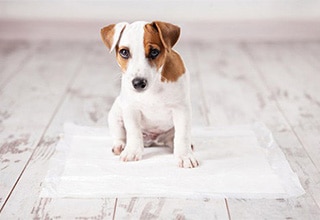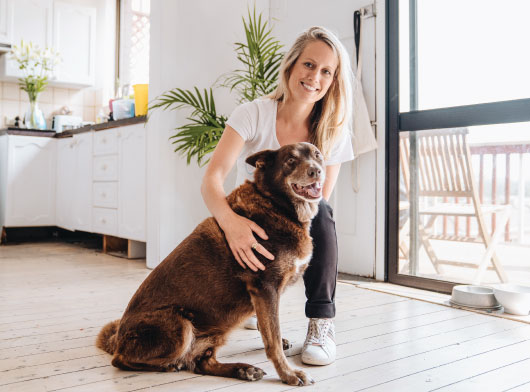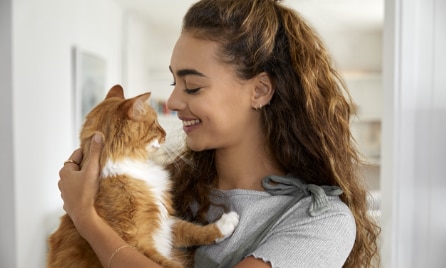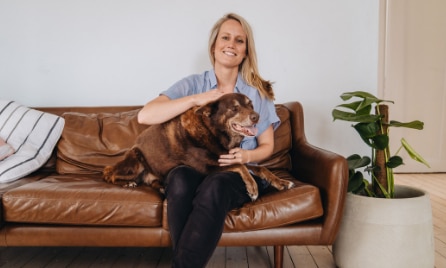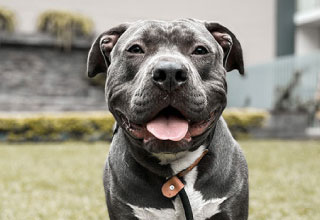- text
-
† Offer available to new Everyday Pet Insurance policyholders, and is limited to 1 membership per eligible policy. The free membership offer (valued at $199p.a) is from the date of your policy commencement, provided your Everyday Pet Insurance policy remains active. You are not eligible to redeem the free membership subscription for cash or credit. VetAssist is a separate subscription based service to the Everyday Pet Insurance product, and is provided independently by Everyday Insurance third party service provider, VetChat Services Pty Ltd (VetChat). Click here for full VetAssist Service terms and conditions. Everyday Insurance reserves the right to vary or remove this offer at any time and will provide reasonable notice of any such changes.
Toilet training tips for your puppy.
Every new puppy carer needs to have a toilet training plan for their puppy, that is in action from day one. Importantly, make sure it is communicated to all the members of the home so that everyone is on the same page and the path to a toilet trained puppy is as easy as possible.
Some pups will get it within a few days, while others can take months.
So what should my toilet training plan be?
It’s helping your puppy to know what you want them to do, and then rewarding them when they do it. Easy, right?! The key is to be patient and consistent.
Help your puppy know what to do.
Firstly decide where you want your puppy to go to the toilet. Is there a designated area in the yard, anywhere at all on the grass, a balcony, or grass patch inside? Now that you know where you want them to go - you need to share this with them! Take them to that place frequently. At least every 30 minutes and particularly after eating, drinking or sleeping.
Get to know the signs that your puppy is showing you when they want to toilet (e.g sniffing, restlessness––you’ll get to know them), and then take them straight to their spot.
If you start a routine: set feeding times and play times and you’ll soon notice when your mate needs to go.
Always keep the toilet trips at night calm: speak in low, quiet tones and stand with them for support (don’t let this be playtime). You can pair your toilet trips with a phrase. One of mine is the very original ‘wee wees!’ This becomes handy as they grow up.
If you are using a crate at night - a handy tip is to start with the crate near to you that way you can be more responsive to toilet trips during the night.
Reward their efforts.
So now they’ve gone to the toilet where you want them to - reward them for it! Don’t wait for them to go back in the house - create a positive association and do it straight away too, so they know what they’re being rewarded for. Treats must be safe for puppies, and shouldn’t make up more than 10% of their total diet. A balanced diet is essential for puppies as they grow.
In addition to rewarding, it’s also important to ignore accidents, even if you see them in the act. Fur kids (like human kids) can’t always prevent going to the loo. It’s all part of growing up.
Related articles.
- text
-
Everyday Pet Insurance policies entered into for the first time prior to 17 July 2023 and subsequent renewals of those policies are issued by The Hollard Insurance Company Pty Ltd ABN 78 090 584 473, AFSL 241436 (Hollard), arranged and administered by PetSure (Australia) Pty Ltd ABN 95 075 949 923, AFSL 420183 (PetSure) and promoted and distributed by Hollard’s Authorised Representative (AR) Woolworths Group Limited ABN 88 000 014 675, AR 245476 (Woolworths).
Everyday Pet Insurance policies entered into for the first time on or after 17 July 2023 and subsequent renewals of those policies are issued by PetSure and promoted and distributed by PetSure’s AR, Woolworths.
Any advice provided is general only and does not take into account your individual objectives, financial situation or needs. Please consider the Product Disclosure Statement (PDS) to ensure this product meets your needs before purchasing, or choosing to continue with the product. PDS and Target Market Determination available at insurance.everyday.com.au/pet-insurance.
